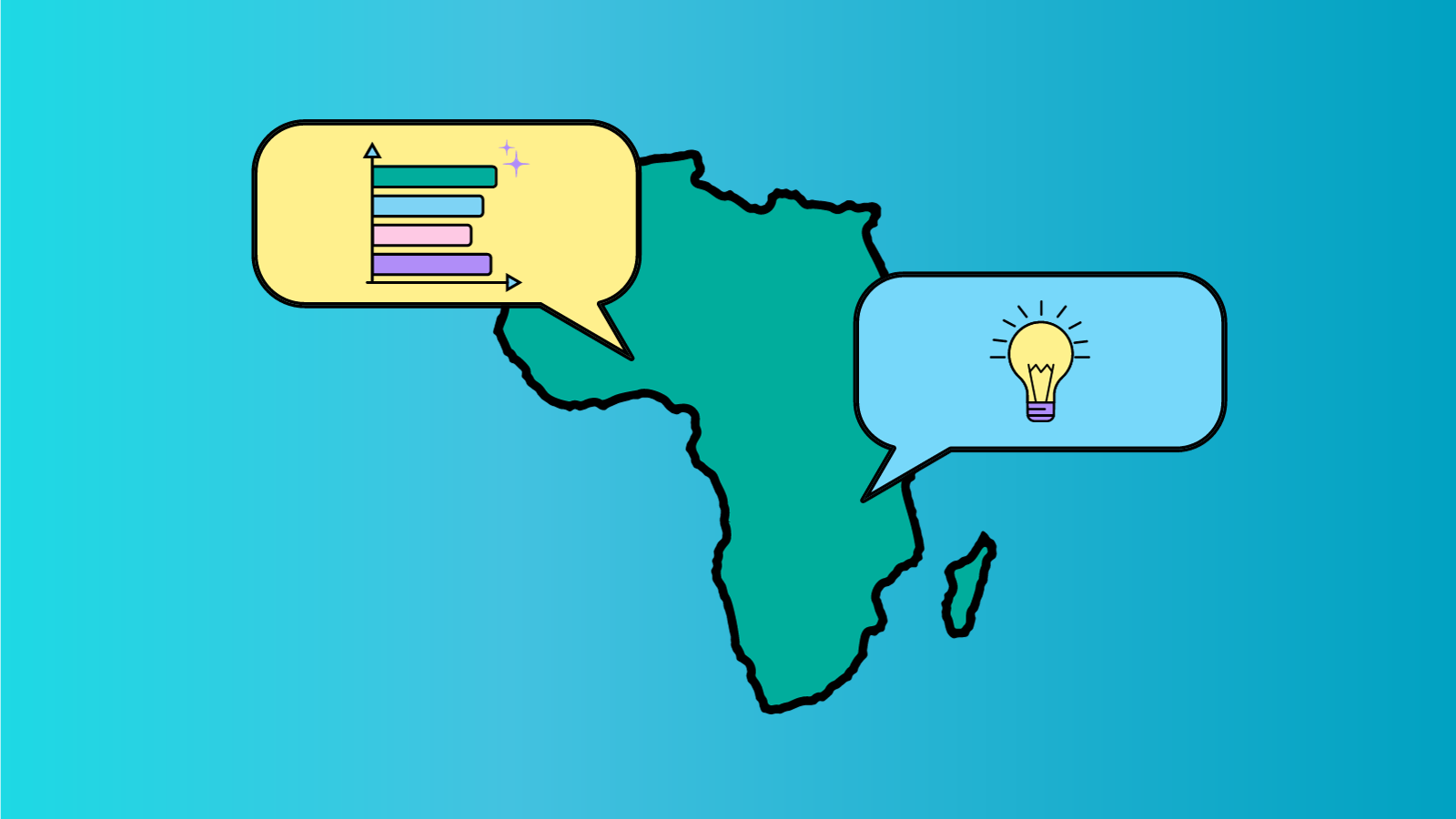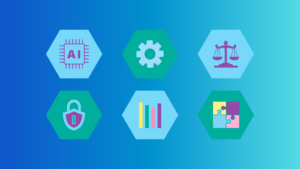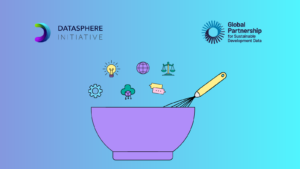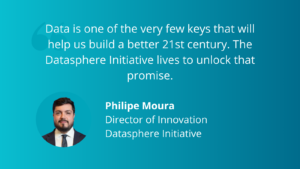On October 5, 2023, the Datasphere Initiative, along with the Data for Development Network (D4D.net) and the Global Index on Responsible AI, hosted an online event on data governance and artificial intelligence (AI) in Africa as part of the “Let’s Talk About Data & AI” webinar series.
The discussion focused on the effective governance of data and AI, including the key players in the ecosystem, policy considerations, and the challenges and opportunities that lie ahead.
Landscape of Artificial Intelligence in Africa
The moderator of the session, Rachel Adams, Chair of the D4D Network and Principal Investigator for the Global Index on Responsible AI, highlighted the importance of bringing a southern perspective to the global governance of AI and the need to emphasize the insights and knowledge from regions that have been underrepresented in global debates.
In training AI systems, Leo Mutuku, AI Research Lead at the Local Development Research Institute, pointed out the importance of having high-quality and diverse datasets to ensure that local communities in Africa are both represented and equal beneficiaries of AI development.
“If we have good approaches to data governance, we ensure that human rights are safeguarded, and at the same time, ensure equitable access and the sharing of benefits”.
Melissa Omino, Director of the Centre for Intellectual Property and Information Technology Law, provided insights into the legal landscape in Africa concerning data protection and AI. While Africa has made significant strides in data protection laws, the same cannot be said for AI regulation. Melissa also addressed the need for strategies and roadmaps to guide the development of AI regulations, emphasizing the importance of understanding the African context.
“We need to take a step back and first understand the African ecosystem before regulating it. Let’s have a roadmap first.”
Justin Bryant, who leads the Global Sandboxes Forum at the Datasphere Initiative, shared insights on the concept of sandboxes as a means to foster AI innovation while addressing regulatory challenges. He discussed the unique perspectives that African nations can bring to global conversations along with the specific challenges they face, including infrastructure limitations and the crucial need for workforce development. Justin advocated for accelerated capacity building, together with knowledge sharing and the need for multi-stakeholder collaboration in shaping AI governance.
“It’s very important for African nations to understand the unique perspectives that they bring to the global conversation. Africa has so much richness to contribute and it needs to be reflected in innovative proposals for regulation”.
Key Challenges and Solutions of AI Governance in Africa
The panelists touched upon several critical insights and challenges in the context of AI governance in Africa:
- AI regulation in Africa: Africa is still in the early stages of an AI regulatory framework with relatively little legislation or policy currently in place on the continent. The absence of comprehensive AI regulations poses a significant challenge when it comes to implementing effective data governance. To address this challenge, there is a pressing need to consider the development of a code of conduct to guide stakeholders involved in AI development and use. Panelists agreed that rushing into regulations may not serve the local context effectively. Developing AI strategies and guidance based on understanding the African ecosystem are prerequisites to regulation.
- Capacity building: Building capacity among policymakers, the workforce (specifically youth), and educators is crucial for advancing AI governance that does not further marginalize traditionally underrepresented elements within African communities. Justin emphasized in particular the importance of supporting digital-native youth and universities in Africa.
- Multi-stakeholder approach: The need for multi-stakeholder collaboration, including civil society, the public and private sectors, regulators, and international institutions, was recognized as essential for the development of robust AI governance.
- Inclusive policies: Melissa underscored the importance of integrating gender equity and the needs of marginalized groups into policy frameworks across the continent. Developing a dedicated strategy or roadmap that prioritizes these underrepresented segments of society would play a pivotal role in effectively addressing the associated challenges.
Looking Ahead
As African countries seek to integrate their unique perspectives in global AI governance, the path forward lies in collaborative, multi-stakeholder efforts, capacity building, and inclusive policies and frameworks.
Capacity-building initiatives, particularly for digital-native youth and universities, will empower Africa to harness the full potential of AI while shaping its trajectory responsibly. In addition, prioritizing inclusive policies and frameworks that consider the multifaceted dimensions of AI, including gender dynamics and marginalized groups, could help ensure that the benefits of AI extend equitably to all segments of society.
Africa’s active engagement in these endeavors not only enriches the global AI ecosystem, but also positions the continent as a vital contributor to a more inclusive, equitable, and ethically-driven AI future.





